|
8pm, Friday 14 November 2014
Vercoe Room, Wesley Uniting Church, 22 National Circuit, Forrest, Canberra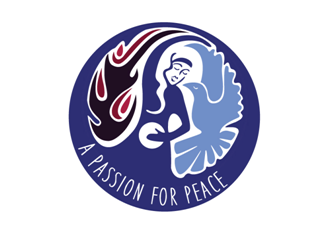
Women with a Passion for Peace
A PASSION FOR PEACE COMPOSER AND CANBERRA JUNGIAN ANALYST
DR GLENDA CLOUGHLEY AND A CHORUS OF WOMEN
What makes the way women approach the issue of world peace quite different to politics as usual?
The feeling that there is much hope for the future in this subject has been growing in and around A Chorus of Women as we write and begin to sing A Passion for Peace — the new community choral work that a chorus of over 100 Canberrans will perform during the centenary of the 1915 International Congress of Women from 28 April to 1 May next year.
The teaching story of the 1200 women from 12 warring and neutral nations gathering in The Hague while some of their men were at war against each other is set within A Passion for Peace as a timeless law song about ways to pass cultural health and wellbeing on through the generations.
The Jung Society meeting will follow a work-in-progress performance of excerpts from A Passion for Peace and a public conversation about the choral work at the Australian Centre for Christianity and Culture, Blackall Street, Barton, at 7.30pm on Remembrance Day, Tuesday 11 November.
Glenda will begin from the statement of Jane Addams, the 1915 Congress President and Nobel Peace Laureate, who said that ‘Peace is not merely an absence of war. Peace is the nurture of human life.’ She will reflect on some patternings of women's ways of being and thinking together, including in the collaborative processes and cyclical rhythms that are as clear in A Chorus of Women as they are in the transcripts of the 1915 Congress. Some of the Passion singers will present a taste of the new music, led by Johanna McBride, Glenda’s long-term artistic collaborator who is the Musical Director of A Passion for Peace.
The Chorus women will lead a conversation about approaching cultural imperatives like peace and our response to climate change by setting these inclusive, complementary approaches alongside the competitive battles that tend to dominate business, politics and much public discourse.
This is another in a series of ’singing papers’ or ‘performance lectures’ Glenda has brought to Canberra Jung Society over many years –– most recently for her mythic story-song about climate change, The Gifts of the Furies, which A Chorus of Women presented with a cast of 80 in the Museum of Old Parliament House during Floriade Festival 2010. Everyone is encouraged to try to get to the ACCC on Tuesday the 11th for more of the music as a prelude to our meeting with these Women with a Passion for Peace.
For more information, including how to get involved, see www.chorusofwomen.org
or the Passion project weblog http://apassionforpeace.weebly.com
~ Something Special ~
Six-week Dream Group
October and November
Facilitated by Dorothea Wojnar
Venue: Vercoe Room, Wesley Uniting Church 22 National Circuit, Forrest ACT
Cost: $ 10 per evening - net proceeds go to the Jung Society.
"The dream is a little hidden door in the innermost and most secret recesses of the soul, opening into that cosmic night which was psyche long before there was any ego consciousness, and which will remain psyche no matter how far our ego-consciousness extends.
For all ego-consciousness is isolated; because it separates and discriminates, it knows only particulars, and it sees only those that can be related to the ego. Its essence is limitation, even though it reaches to the farthest nebulae among the stars. All consciousness separates; but in dreams we put on the likeness of that more universal, truer, more eternal man dwelling in the darkness of primordial night. There he is still the whole, and the whole is in him, indistinguishable from nature and bare of all egohood. It is from these all-uniting depths that the dream arises, be it never so childish, grotesque, and immoral."
C G Jung "The Meaning of Psychology for Modern Man" (1933).
In CW 10: Civilization in Transition. pg. 304
The group was facilitated by Dorothea Wojnar. Members of the group were encouraged to share their dreams and we used active imagination in working with the dreams.
Dorothea is a psychotherapist, currently training as a Jungian analyst with the C. G .Jung Institute of the Australian and New Zealand Society of Jungian Analysts. Dorothea has extensive experience as a group leader and therapist across a range of people and issues, working in both a public health facility as well as in private practice.
For further information, please contact Dorothea Wojnar on 6292 2014 or 0413 245 835.
Saturday 8 November 2014, 10 am to 5 pm
Dorothea Wojnar
"Active Imagination"
Most of the basic concepts of analytical psychology come from Jung's experiences with active imagination. First, he 'made the observations' and only then did he 'hammer out' his views. For example, the shadow, the syzygy (anima and animus), persona, ego, the Self, all of these are concepts, but at the same time they are inner figures and inner events that personify certain structures and functions of the psyche. Affect, archetype, complex, libido — these are words and concepts — but in the concepts, in the deepest sense, they are palpable human experiences.
- My most fundamental views and ideas derive from these experiences. First I made the observations and only then did I hammer out my views. And so it is with the hand that guides the crayon or brush, the foot that executes the dance-step, with the eye and the ear, with the word and the thought: a dark impulse is the ultimate arbiter of the pattern, an unconscious 'a priori' precipitates itself into plastic form.
(Jung 1947 'On the Nature of the Psyche', in CW 8: par. 402)
Jung referred to active imagination as his 'analytical method of psychotherapy' (Letters, Volume Tw1975: 222). The process involves turning attention and curiosity toward the inner world of the imagination and expressing it symbolically, all the while seeking a self-reflective, psychological point of view.
The object of active imagination is to give a voice to sides of the personality that are normally not heard, thereby establishing a line of communication between consciousness and the unconscious. Even when the end products - drawing, painting, writing, sculpture, dance, music, drama etc - are not interpreted, something goes on between creator and creation that contributes to a transformation of Consciousness.
The workshop is experiential and completely confidential and participants are asked not to discuss material from the workshop outside the group.
Cost $40 for members, $50 for non-members.
Location: MacKillop House, 50 Archibald St, Lyneham. ACT.
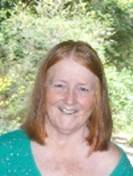
Dorothea is a psychotherapist and she is currently training as a Jungian analyst with the C. G .Jung Institute of the Australian and New Zealand Society of Jungian analysts. Dorothea has extensive experience as a group leader and therapist across a range of people and issues, working in both a public health facility as well as in private practice.
Friday 3 October 2014, 8pm
Sarah Gibson
"The Spider – from Creatrix to Dark Mother,
from Arachnophobia to Admiration"
The spider provokes admiration or disgust. Whether we are impressed by the creativity of a spider’s web or scream at the hairy spider who has moved into our home, we are often mystified by the spiders in our dreams.
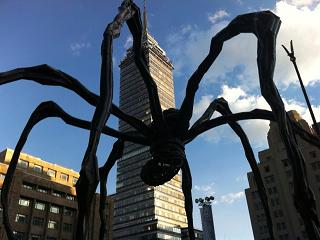
Jungian analyst Sarah Gibson weaves the myths of ‘Arachne’ and ‘Grandmother Spider’ together with the behaviour of real spiders to explore the psychological meanings of the symbol of the spider. She examines the giant spider sculptures by Louise Bourgeois, arachnophobia and western culture’s negative projection of the spider onto women. Following the symbol of the spider as it appears and disappears in the sandplay processes and dreams of some women, Sarah shows how the symbol of the spider offers an understanding of women’s relationship to the negative mother and the dark feminine within.
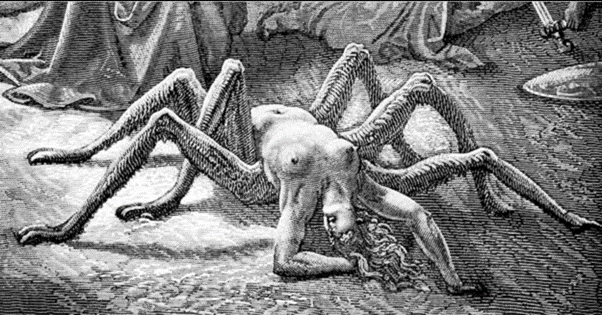
(Image by Gustave Dore: “Arachne”, The Divine Comedy 1861)
Sarah Gibson is a Jungian analyst (ANZSJA) and sandplay therapist (ISST) working clinically with adults in private practice in Sydney. She is a training analyst with ANZSJA.
Sarah works clinically with adults, and has a particular interest in story and creativity. She is also an artist and filmmaker. Her films include Myths of Childhood and The Hundredth Room. For several years Sarah has been exploring the hidden meanings of fairy tales for adults.
She has just released an enhanced e-book: "Re-enchantment: Ways to Interpret Fairy Tales" (downloadable from iTunes).
Her interactive online project Re-enchantment can be seen at
http://www.abc.net.au/re-enchantment
Friday 12 September 2014, 8pm
Venue this month: Vercoe Room, Wesley Uniting Church
22 National Circuit, Forrest ACT
(Not the MacKillop Centre as usual!)
DR BRENDON STEWART
"On Ageing"
In relation to getting older, Kierkegaard reminds us that the thought of death is a good dancing partner.
There is a delightfully touching scenario in the feel-good movie About Time where the young man Tim, who is narrating the story, asks to be momentarily excused from the gathering of his family as they prepare to attend the funeral of his father. The film’s story is structured around the fanciful ability to travel back in time. Tim employs his mysterious skill and returns to his dad a few days before he dies. Here he is given, in an amusingly witty way his father’s last words on wisdom and the living of a good life. They exchange a kiss, reminisce and Tim takes his leave. Sufficient unto the day is the stuff thereof, Matthew’s gospel reminds us.
Death stories illuminate life stories because death is an organising principle. Is the matter of understanding ourselves and by the same token being understood by others the most useful psychological project? We might want to believe that we are intelligible to ourselves and to others but it may be more sensible to find pleasurable ways of living with ourselves, and each other, rather than dubious ways of knowing and understanding.
It’s not that we deliberately misunderstand each other and that we keep getting it wrong, it is that we put so much false belief in the whole notion of knowing and understanding. The characteristic of a life lived is that it’s elusive as an object of knowledge. A life is not a discernable coherent story, something we can look back upon.
Dr Brendon Stewart is working with the Cana Communities in inner city Sydney. Here he is involved with a mentoring programme assisting men who have recently been released from NSW state prisons. He is also involved with the organization of acute need shelters for homeless men.
Brendon was appointed to the School of Social Ecology at the University of Western Sydney. He retired in 2009 as a senior lecturer from the position of academic coordinator of the Masters of Analytical Psychology, in the University's School of Psychology.
His on-going research continues to bring together analytical psychology, Buddhist thought, creativity and learning. He has done extensive research with recently arrived migrants in various local government areas of Western Sydney.
Brendon is involved with the University of the Third Age (U3A) where he has delivered a number of courses that attempt to describe a psychology suitable for enjoying life.
Friday 1 August 2014, 8pm
Carolyn Minchin:
"Overcoming the Psychology of Terra Nullius;
Mindfulness at the Boundaries in Contemporary Australian Psychology"
The creative edge in Australian culture is the place where cultures meet, sometimes in conflict, often with mutual bewilderment, and with a continuing gap in understanding in language and symbols from the planting of the Union Jack to the present day.
As the study and practice of awareness becomes more prevalent in Western psychology, the healing practices at work within Aboriginal Australia become more visible, and the possibility for dialogue emerges. This talk will engage in overcoming the psychology of terra nullius through recognition of the skills and practices of Aboriginal academics and teachers, and the application of mindfulness to the process of cross-cultural dialogue.
We were invited to re-imagine this relationship, with a focus on Miriam Rose Ungunmerr-Baumann’s definition of dadirri, or deep listening, and the challenge from historian Dr Gary Foley to decolonise and act as allies rather than pretending expertise on Aboriginal culture. The second half of the evening was an invitation to engage in a yarning circle, or learning circle.
Carolyn Minchin is a graduate in the Masters in Counselling at the University of Canberra and has studied mindfulness with the Australian Association of Buddhist Counsellors and Psychotherapists. She is currently training as a Social Worker at the Australian Catholic University.
Friday 4 July 2014, 8pm
"Jung and the Prophetic Life"
Professor David Tacey
Carl Jung did not present himself as a prophet; in fact he resisted being seen in this light, as he thought it would be detrimental to his scientific reputation.
But despite his protests and resistances, many can see that if Jung was not a prophet exactly, he did have a prophetic imagination and he lived a prophetic life. ‘I do not wish to pass myself off as a prophet,’ he wrote in ‘The Spiritual Problem of Modern Man’, ‘but …’, and after the but comes a veritable stream of prophetic utterances and statements!
Jung suffered a prophetic burden, by which I mean he was frequently misunderstood, sometimes attacked, and experienced loneliness and isolation. He had to speak for the ‘spirit of the depths’, as he put it in The Red Book, as distinct from the ‘spirit of the times’. This talk will explore his life in a prophetic context, in relation to the two traditions that meant most to him: science and religion.
Dr David Tacey is Professor of Humanities at La Trobe University, Melbourne, where he teaches courses on Jungian psychology, literature and cultural studies. David has written 14 books, of which 8 are specifically on Jungian psychology. His most recent books are Gods and Diseases (2011), The Jung Reader (2012), and The Darkening Spirit: Jung, Spirituality, Religion (2013). Other books on Jung include How to Read Jung (2006), The Idea of the Numinous: Contemporary Jungian and Psychoanalytic Perspectives (2006), and Jung and the New Age (2001).
David gives short courses at the summer school of the C. G. Jung Institute in Zurich and is on the editorial boards of several international journals of Jungian studies. His books have been translated into numerous languages, including Chinese, Korean, Spanish and French.
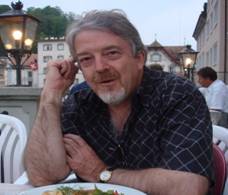
Wednesday 18 June 2014 8pm
Craig San Roque
"Report to Greco"
Venue: Wesley Uniting Church
22 National Circuit, Forrest ACT
An evening seminar with
Craig San Roque
This evening seminar with Craig San Roque is distilled from themes explored in the full day workshop given by Craig at the 2014 congress of the Psychotherapists and Counsellors Federation (PACFA) in Sydney, June 13- 15. The congress theme is Complexity and Connectedness in Life and Love.
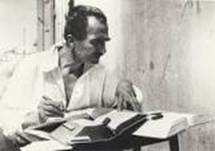 kazantzakis kazantzakis
Nikos Kazantzakis (Zorba the Greek,) completed Report to Greco just before he died. In this he gives some space to an experience he names as the Cretan Glance. This work is a deeply personal and imaginative ‘report’ to his ‘master’, the painter El Greco. Though, of course, El Greco lived some centuries before Kazantzakis himself. It is a history of his inner life and inner struggles with his work, much as Jung’s autobiography, Memories Dreams Reflections is an inner history and a report to you. Taking a leaf from Kazantzakis, I have entitled this seminar, A Report to Greco, preparing the way for you/I to imagine our own version of a ‘Report to ...? -- This idea suggests a collected record of inner life and experiences while living in ‘interesting times’. I have an idea that such a study will help to validate your/our own carefully considered maturation in an Australian context - without recourse to idealisation and Jungian sentimentalities.
As preparation you might like to consider these ideas ...
1. Australia now is a complex hybrid culture. The multiple presences of many cultures and conditions have implications that I wish to explore, contemplating the nature of personal individuation while under the pressure of trauma, cultural anxiety and collapsing identity. Such a situation is a challenge to a unique form of antipodean individuation that Jung and Freud probably had no intimation of. I present examples of complexity and connectedness in intercultural relations in Australia. This has changed my thinking and practice. And so too has the ‘Cretan Glance’.
2. The term onto-poetic; is a mingling of the Greek concept ontos, (‘that which is’ - ‘I am’ or ‘being’); with poiesis, indicating ‘coming into being’ - ‘creation’ or ‘bringing forth’. Ontos and poiesis synthesise into a sense of the creative relationships between beings. There are times when we most sensitively feel a poetry of being; perhaps with an infant in arms, the eyes gazing; perhaps when lovers are finding and losing each other’s intimacies - a glance when human creatures and nature’s forces co-mingle ... when imagining numinous creatures ... The La Trobe philosopher, Freya Mathews, has coined this term - the ontopoetic - lovingly acknowledging that the world itself is open - ‘intimately psycho-active and disposed toward communicative engagement with us.’ Psycho-active communicative engagement takes place in psychotherapy and in other similar intimate settings. This subtle matter of psychoactive ontopoetic relationship with the world and other is worth noticing. It seems to be the same idea that Zazantzakis names as the ‘Cretan glance’. For myself, the experience of being a kind of hybrid therapist, practising over a long period and in conflictual circumstances, has done something to my body and psyche, and attuned an ontopoetic sensibility; perhaps I want to report on this to you.
Craig San Roque, PhD, member APS, AAGP, ANZSJA. Consulting Psychologist. Jungian Analyst (graduated SAP London, 1984). Based in Sydney and Alice Springs, Central Australia, and influenced originally by the creative thinking of Winnicott, Bion, and post-Jungians, he has intentionally practised in a range of community, urban and remote settings, including indigenous area mental health, the NPY Women’s Council Ngangkari project and the Warlpiri Youth Development Aboriginal Corporation.
As part of a Jungian exploration of cultures and different layers of mentality, he has composed many unique performance events, including revitalisations of Oedipus, The Bacchae, and Persephone. He has taught anthropology, performance studies and cultural psychology at UWS. Publications include Placing Psyche, (with Dowd and Tacey), and the graphic novel, A Long Weekend in Alice Springs - with Josh Santospirito.
"Introduction to Carl Jung: His Life and Work"
A 6 week course from 6 May to 10 June 2014 7.30 to 9.30 pm
Vercoe Room,
Wesley Uniting Church
22 National Circuit, Forrest, ACT 2603
Carl Jung is regarded as one of the foremost thinkers of the Twentieth Century introducing such concepts as extraversion and introversion, the collective unconscious and archetypes into everyday discourse. In this course, Dorothea Wojnar will trace the significant life experiences of Carl Jung which forged his theoretical understanding thereby introducing his most important psychological concepts.
Course content
This Introduction to Carl Jung, life and work course covers the following topics:
Background
The influences of childhood and family background
On Jung’s psychology
Jung’s professional activities
The split with Freud
Jung’s “descent into the unconscious”
The Structure of Personality I
Jung's Model of the Psyche
Consciousness and the ego
The personal unconscious
The collective unconscious and the archetypes
Projection
Complexes
Persona
Shadow, Anima, Animus
The Self
The Structure of Personality II
Psychological types
The attitudes of Extraversion and Introversion
The functions of Sensation, Intuition, Thinking & Feeling
Dealing with the inferior function
The Dynamics and Development of Personality
Libido as life energy
The canalisation of psychic energy
The progression and regression of libido
The concept of Individuation
The stages of life
Ways and Means
Dream psychology
Fairy Tales
Jung’s use of alchemical symbolism
The place of symbols in psychic life
Synchronicity
Time and location
A 6 week course from 6 May to 10 June 2014 7.30 to 9.30 pm
Vercoe Room
Wesley Uniting Church
22 National Circuit, Forrest, ACT 2603
Friday 9 May 2014 8pm
Craig Delaney
Reflections on ‘The Cloven Man’
There is a remarkable series of paintings by Swiss artist, Peter Birkhauser, which have been published, together with a commentary, by his daughter, analyst Eva Wertenschlag-Birkhauser.
The paintings were part of a long analysis and individuation journey. One of them, the “Cloven Man” or “The World’s Wound”, is an image of a figure who appeared to Birkhauser in a frightening dream, a dream which started his inner odyssey.
It turns out that this figure is a recurrent visitor to the dreams, visions, art, stories and religious experience of humanity. He appears and reappears throughout Jung’s work, and apparently visits us still. He reminds us of the brokenness of all things and the wound this has opened in each of our beings. Far from being a nice philosophical cum psycho-theoretical talking point, our relationship with this ‘deepest, dark-down’ fact defines the whole of our lives.
Craig Delaney is a Jungian psychotherapist practising in Adelaide, and is the current President of the Jung Society of South Australia.
Friday 4 April 2014 8pm
"Circumambulating the Centre:
The Symbolism of the Bees, the Honey and the Hive"
Frith Luton
The symbolism of the bee, honey and the hive intertwine but at the core is the imagery of the circumambulation of the centre—for bees, this is a dynamic in the service of the queen bee and the preservation of the hive; in depth psychological terms, circumambulation is linked with mandala symbolism or the archetype of inner order: an archetype that Jung said was perhaps the most important.
This centre- or inner-directed focus, a dynamic of movement (circulation or rotation) around a centre, not only is fundamental to the human religious instinct but also is quintessential in what CG Jung expresses, in descriptions rich in alchemical imagery, of the psychological individuation process in which the centre is named the Self or inner god-image.
This lecture involves an approach to the alchemical union of opposites through symbolism related to the life and nature of the bee. Some particular opposites associated with the bee, honey and the hive include those of love and war, sweetness and bitterness, the individual and multiplicity, light and dark, order and chaos, industry and laziness, earth and heaven/the sky, sun and moon, spirit and matter, fertility and sterility, regeneration and death. This lecture will explore some of these.
Frith Luton brings together her practical experience as a beekeeper and insights gained in her work in Depth psychology.
Bees have been of high value and fascination to humans for millennia—venerated, yet feared. The way a hive of bees lives and works tirelessly in the service of its queen and to produce honey, a marvellous golden substance, is a living mystery. As honey producers and crucial pollinators of the plants that provide food for humankind, bees are like the saviours of the macrocosm, mentioned in alchemy. (Frith Luton, 2007)
Frith completed her analyst training in Zurich and is in private practice in Melbourne. Her passionate interest in nature, literature and the symbolic life has been strong since childhood. Frith has been a professional book editor for over 25 years and holds a Bachelor of Arts (Hons) in History and a Diploma of Education from the University of Melbourne, a Graduate Diploma in Editing and Publishing (RMIT) and a Master of Analytical Psychology (UWS). Her book Bees, Honey and the Hive: Circumambulating the Centre was published by Inner City Books in 2011.
Friday 7 March 2014 8pm
"Individuation and the Self"
Dorothea Wojnar
This presentation examined the principle described by Carl Jung as "Individuation." Individuation is a lifelong developmental process that usually involves separating from parents, establishing success in love and work, integrating disowned parts of one's self, breaking away from societal and family expectations, listening to one's unconscious, and finding an ultimate wholeness and balance in life. It is the ultimate goal and challenge for those of us striving to live life to its fullest.
Jung uses the concept of the Self to describe his understanding of who we are and the concept of individuation to describe the process by which we can fulfil our potential to become all that we can be. For Jung the self is present before the ego; it is primary and it is the ego that develops from it. The self retains its mystery. We can never fully know or embrace it because we are dependent upon the relatively inferior ego to perceive it. Perhaps this struggle in apprehension has led to very different understandings of the self's qualities. Jungian analytical psychology sees the self as many things including psychic structure, developmental process, transcendental postulate, affective experience and archetype. It has been depicted as the totality of body and mind, the God image, the experience of overpowering feelings, the union of opposites and a dynamic force which pilots the individual on his/her journey through life.
Individuation is the process of self realisation, the discovery and experience of meaning and purpose in life; the means by which one finds oneself and becomes who one really is.
The presentation was followed by discussion and work in small groups, where each person was encouraged to share some of their own individuation journey.
Dorothea is a psychotherapist and she is currently training as a Jungian analyst with the C.G. Jung Institute of the Australian and New Zealand Society of Jungian Analysts. Dorothea has extensive experience as a group leader and therapist across a range of people and issues, working in both a public health facility as well as in private practice.
Friday 7 February 2014 8pm
"The Power of Imagination"
Mary van de Graaff
In this presentation Mary stimulated the imagination of participants by initially asking them to imagine simple every-day objects. For instance, when a group is asked to close their eyes and imagine a tree or a house, everyone will conjure up a different type of tree or house.
There is no right or wrong. Similar to a guided meditation, she prompted participants to ‘play’ with those images, to control and change them whichever way the individual wants to, so as to ‘look’ at the objects the mind created and what they may symbolise for the individual. Her aim is to guide participants to move beyond the conscious mind. When the brain accumulates information and memories, it uses information it has absorbed through our senses – what we’ve seen, heard, read, touched, tasted, felt or smelled. By exploring deeper levels of consciousness, we looked at images that emerge and tried to decipher their relevance to our everyday experience.

Mary van de Graaff has conducted Self-Awareness and Personal Development workshops in Canberra, the South Coast and overseas for over 30 years. She has regularly presented interactive talks for the Belconnen Women’s Group for 14 years and for 35 years conducted talks and public demonstrations for the Canberra Spiritualist Association Inc.
Her aim is for people to trust and believe in their own intuition.
Like dreams, our minds create a multitude of images during our waking state which may make no sense at all or could contain symbolic messages for us to interpret and consider.
|